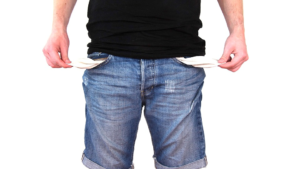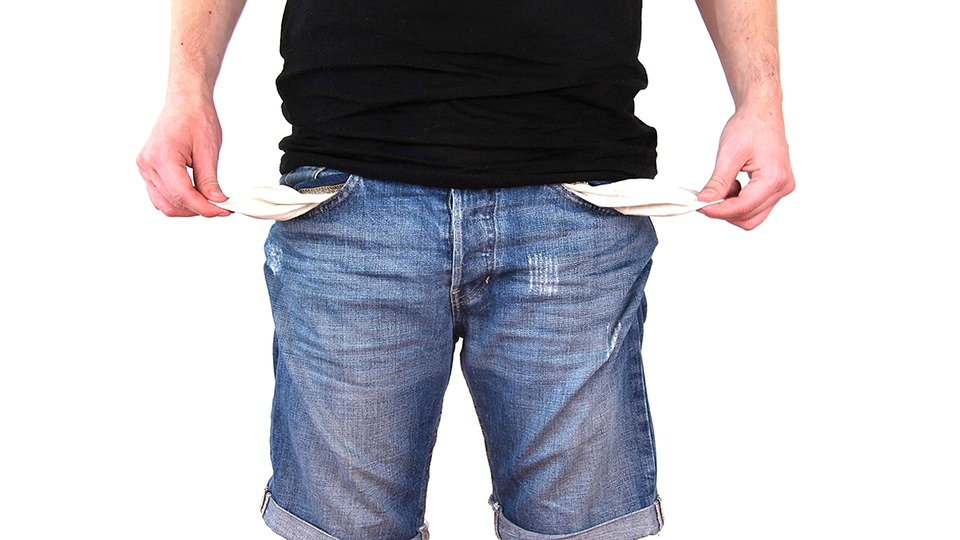2 August 2018
Darling, you shouldn’t have!
Households have slipped into the red.
By Frank O’Nomics
 “Annual income twenty pounds, annual expenditure 19 pounds nineteen and six, result happiness. Annual income twenty pounds, annual expenditure twenty pounds ought and six, result misery.” Mr Micawber’s wise advice on household financial management has long been cited in support of pecuniary prudence. There have always been those who have lived beyond their means and for many it may have been a rational move to borrow against justified expectations of future earnings. For the economy it may have mattered little, as those able to save offset those who needed to borrow, and the nations net saving kept rising.
“Annual income twenty pounds, annual expenditure 19 pounds nineteen and six, result happiness. Annual income twenty pounds, annual expenditure twenty pounds ought and six, result misery.” Mr Micawber’s wise advice on household financial management has long been cited in support of pecuniary prudence. There have always been those who have lived beyond their means and for many it may have been a rational move to borrow against justified expectations of future earnings. For the economy it may have mattered little, as those able to save offset those who needed to borrow, and the nations net saving kept rising.
Indeed in recent times the economy has benefitted from household profligacy. The disinclination of businesses to borrow to invest has largely been offset by household spending, much of it financed by borrowing or dissaving. However, there are now signs that households have gone too far. For the first time in 30 years, households are now, on average, spending more than they earn. This is only going to get worse; data this week showed yet another strong rise in unsecured debt and households face a rising cost of servicing that debt as interest rates finally start to rise. The social and economic consequences could be severe, depending on how quickly the government reacts.
Last year, on average, UK households spent or invested around £900 more than they received in income. This is almost £25bn or, as the ONS has pointed out, around one fifth of the annual NHS budget in England. The last time this happened was in 1988 but the deficit then was a mere £300mn, and even in the financial crisis the average household was not a net borrower. The situation has deteriorated at a remarkable speed, shifting from a positive situation of £57bn just 2 years ago, with the size of loans taken out now the highest for 10 years and the sums deposited in banks at their lowest for 6 years. The shift has been a function of low interest rates – which have encouraged borrowing and discouraged saving – and so rate rises could ultimately help, but the stock of debt suggests a lot of pain in the interim. Households borrowed £1.6bn in unsecured credit in June, pushing the amount outstanding to an eye-watering £213bn. Overall consumer credit growth may have slowed, partly in response to the policy makers responsible for financial stability telling lenders to moderate the amount of credit they offer, but it is still running at 8.8%, compared to income growth of just 3%.
Not surprisingly the problem of balancing household finances is most intense within the poorer sections of our society. The poorest 10% spend 2 ½ times their disposable income, while the richest 10% spend less than half. This is not quite as bad as it sounds given that many students sit within those poorest 10% and their impoverished circumstances will, for most, be temporary. Nevertheless data from the Centre for Economics and Business Research this week showed that those under 30 had the slowest income growth and were benefiting least from any recent increases in spending power.
What, then, can be done to resolve the situation? As discussed, the rise in interest rates will do something to correct the balance, and it does seem that the fall in real income growth has been arrested as average earnings are finally outstripping inflation. However, the situation is in danger of getting much worse before it turns and, to minimise the consequences of widespread personal financial default, it is likely that further steps will need to be taken to stop people borrowing beyond their means. So far such steps have gone little beyond shortening the interest free period when people transfer from one credit card to another. Even towards the end of last year the FCA reported that 5mn credit card holders were struggling to pay off their balances, and this must have deteriorated further. Credit restrictions will inevitably impact on others who can service their debts, thereby reducing household spending and, crucially, one of the main drivers of UK economic growth. This is not likely to be offset by businesses spending given on-going uncertainty surrounding Brexit. The net result is much slower economic growth and a further deterioration in public finances as tax revenues fall.
In an environment where inflation has been outstripping the growth in earnings for some time, taking advice from pious, sanctimonious net savers who bemoan the profligacy of those who spend more than they earn and survive on ever-increasing borrowing, may seem to be focussing on the effect and not the cause. Household borrowing has been allowed to progress unchecked for too long and the UK is about to face the consequences at a time when it seems poorly positioned to cope.


